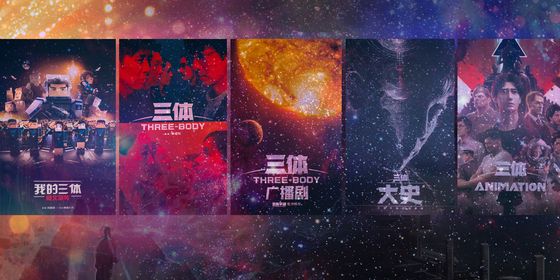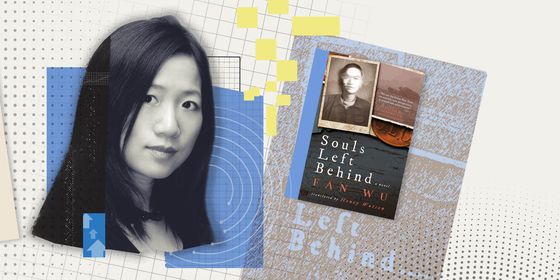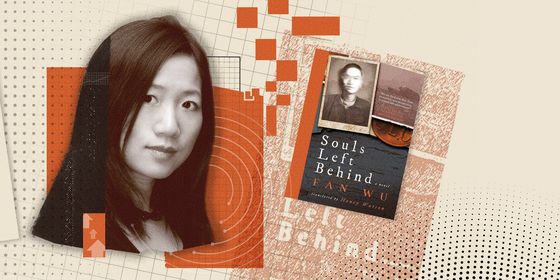Entrepreneur Kai-Fu Lee and sci-fi writer Chen Qiufan weave fiction and technical explanation to illustrate the opportunities and pitfalls of artificial intelligence
The future of humanity is bountiful, rich with cheap clean energy, abundant material goods, and amazing medical breakthroughs all made possible with artificial intelligence. But not for you.
Your future is in grave peril, when those same AI marvels shoot down your job security, economic prospects, and, perhaps, you.
This is the paradox at the heart of AI 2041: Ten Visions for Our Future, the newly released collaboration between technology venture capitalist Kai-Fu Lee, former president of Google China and author of AI Superpowers), and fellow engineer-turned-writer Chen Qiufan (Waste Tide). Though not without its problems, this engaging, timely, and informative volume of short stories and analytic essays largely achieves the authors’ aim, outlined in the book’s introduction, of “a uniquely engaging and accessible primer on AI.”
The two authors blend their expertise well, overall. Lee, the famous billionaire futurist, provides in his introduction a list of over 70 AI-enabled innovations “with a greater than 80 percent likelihood of coming to pass” by 2041. He also writes the essays detailing the state of the science, inherent challenges, and possible solutions.
The fiction is provided by acclaimed sci-fi writer Chen, who has previously won 12 Chinese Nebula Awards for his short stories. His tales take us around the world and back to China with a visit to futuristic Shenzhen, zipping along with self-driving cars, and a Shanghai bristling with robots, automated health-code restrictions, and the dread of a long-lasting pandemic (sound familiar?). Fittingly, they reveal the heights of optimism and depths of dread that this burgeoning AI superpower inspires.
Set in the year 2041, each protagonist’s arc reveals something of the potential and pitfalls our high-tech future will bring. There is cause for alarm, but the authors return frequently to the sentiment articulated in their introduction: “We are the masters of our fate, and no technological revolution will ever change that.”
Lee, one of China’s most popular optimists about our technological future after the success of AI Superpowers and his widely-circulated “10 Letters to Chinese College Students,” has already written and spoken extensively on the power of deep-learning and China’s data-collection advantages. He carries that attitude into the book from start to finish. Each story begins with an introduction from him, like Rod Sterling talking to the camera before each episode of The Twilight Zone, that analyzes an array of technologies for the lay reader. Even the most amateur reader can quickly understand concepts like deep-learning, blockchains, sequence transduction, and more. That alone is useful, given the role self-directed algorithms will play in shaping our future.
The quality of the literature is highly variable; perhaps every literary anthology is destined to such a fate, especially when its purpose is to inform as much as to entertain. The largest shortcoming is Chen’s tendency to tell rather than show, such as when a VR program helps one character, Silver Sparrow, “understand the diversity of human experience at a cognitive level, as well as experience a greater connection with the world at an emotional level. He felt a new joy flow through him during these VR immersions.”
But Chen skillfully employs a wide cast of characters, including some marginalized identities, like a young gay Nigerian man and a boy on the autism spectrum. He also puts in effort to make them more than just props in a hard sci-fi demonstration of new technology. There are some satisfying endings and agreeably familiar tropes from James Bond films, 24, Ender’s Game, and The Girl with the Dragon Tattoo. The turning points may be clumsy at times, and the character development abbreviated, but these short stories succeed in sparking the empathy needed to fully engage with a topic as weighty as the future of humanity.
AI 2041 features a dizzying array of technologies, starting simple (insurance using deep-learning to monetize every choice) and progressing to world-changing (automation of routine jobs, analytic jobs, then nearly all human employment). Lee grounds these predictions in extant breakthroughs and balances his optimism with warnings about the economic and ethical complications they will bring.













